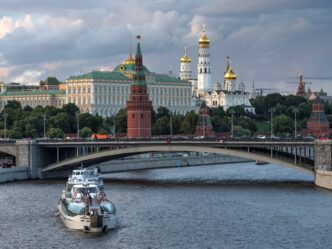Executive Summary
The Story So Far
Why This Matters
Who Thinks What?
European Commission President Ursula von der Leyen has endorsed a “reparations loan” backed by immobilised Russian assets as the most effective method for the European Union to finance Ukraine’s needs in 2026 and 2027. This proposal, which could provide Kyiv with up to 140 billion euros, was discussed by EU finance ministers on Thursday as they sought to solidify long-term support for Ukraine’s defense and economy.
Funding Mechanisms Under Consideration
Addressing the European Parliament, von der Leyen outlined three primary options for funding Ukraine. The first, and her preferred choice, involves leveraging frozen Russian assets. The other two options include the EU borrowing funds from the market using its long-term budget as collateral, or individual EU governments borrowing the necessary cash themselves to then lend or grant to Ukraine.
The “reparations loan” model is described as the “most effective way to sustain Ukraine’s defence and its economy.” Under this scheme, the EU would issue a loan to Ukraine, which would only be repaid if Russia eventually pays reparations for the conflict. This mechanism effectively functions as a grant, providing significant financial support without directly increasing the debt burden on individual EU member states.
The Reparations Loan Proposal
This option has garnered broad support among EU finance ministers, primarily because it avoids adding to national debts while providing substantial funding. Most of the Russian assets frozen within Europe are held in the Belgian securities depository Euroclear. Following Russia’s invasion of Ukraine in February 2022, nearly all these securities have matured and converted into cash.
The proposed process involves the European Commission replacing the Russian cash held in Euroclear accounts with zero-coupon AAA bonds that it would issue. The freed cash would then be directed to Kyiv. Finnish Finance Minister Riikka Purra welcomed the proposal, highlighting its “sufficient firepower” and its ability to limit strain on national budgets.
Belgian Concerns and Russian Retaliation
Despite the broad support, Belgium, where Euroclear is based, has voiced significant concerns regarding potential legal liabilities. The Belgian government fears it could be held responsible if Russia successfully sues Euroclear for the return of its assets. Consequently, Belgium is requesting assurances from other EU governments that they would commit to repaying Moscow within three days if a court ruling mandated the return of the assets.
Belgium is also pressing the European Commission to establish a robust legal framework for the entire operation. This is intended to minimise the risk of losing a potential lawsuit. Furthermore, Belgium has urged other EU countries holding frozen Russian assets to participate in the scheme, thereby distributing the legal and financial responsibility.
The Kremlin has condemned the proposal, asserting that it would constitute an illegal seizure of Russian property and has threatened retaliation, though without specifying the nature of such actions. The European Commission is currently engaged in discussions with Belgium to address its demands, aiming to secure the support of EU leaders for the plan by December.
Outlook
As EU finance ministers continue their deliberations, the “reparations loan” based on frozen Russian assets remains the frontrunner for funding Ukraine’s future needs. The ongoing negotiations with Belgium underscore the complex legal and financial challenges involved in leveraging these assets, while the broader consensus among member states highlights the EU’s commitment to long-term support for Kyiv.








